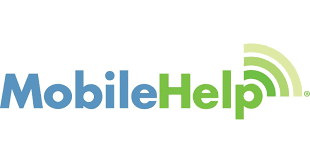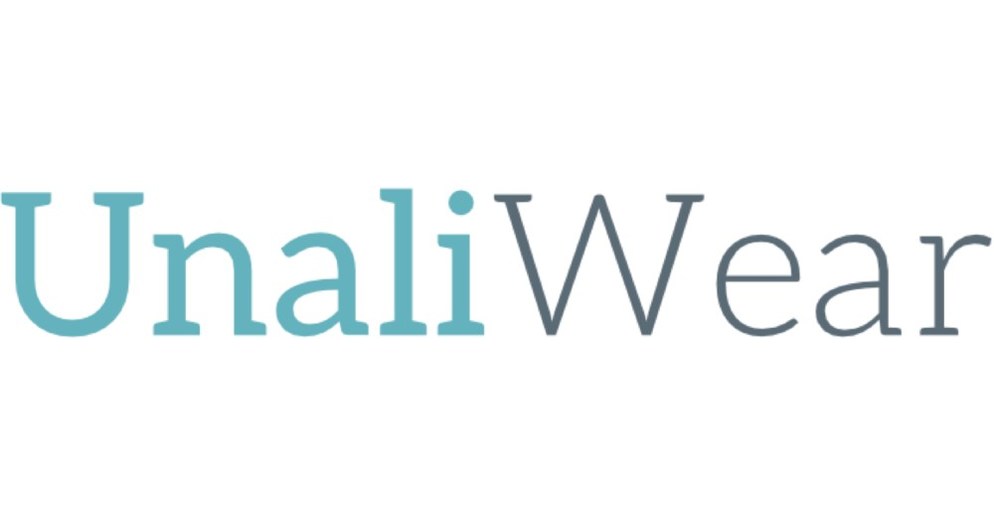Trustedcompanyreviews.com offers free content, reviews and ratings for consumers to read, aimed at helping them compare their options. We may receive advertising compensation from companies featured on our website, influencing the positioning and sequence in which brands (and/or their products) are displayed, as well as affecting the assigned ratings. Please note that the inclusion of company listings on this page does not constitute an endorsement. We do not feature all available providers in the market. With the exception of what is explicitly outlined in our Terms of Service, we disclaim all representations and warranties regarding the information presented on this page. The details, including pricing, displayed on this site may undergo changes at any time.
The Best Medical Alert Systems With an Emergency Alert Button
Medical alert systems are nothing new, but the industry has kept pace with fresh technologies, making devices more usable and discreet over time. The number of choices has also grown to the point that there is a company with products and services that match almost anyone’s needs. That said, it can be difficult to find the best medical alert devices for your needs, so we’ve gathered our ten favorites here for your review.
This overview will give you the most important information on each company, along with the pros and cons that come along with signing up for a plan. All of them offer peace of mind that you can live alone safely and receive help when you need it. Let’s get rolling to learn more about medical alert systems with emergency alert buttons.
Why trust Trusted Company Reviews
- Comprehensive review rating system.
- We work closely with consumers and experts to create editorial ratings.
Trusted Company Reviews #1 Pick for 2025

- Up to 168 hours of battery life
- 1,300-foot signal range
- Class-leading available fall detection capabilities
Why we love it 💖
Medical Guardian’s long-range and extended battery life make it the go-to alert system for people on the go. Call 800-868-9735 to learn more about Medical Guardian’s products and prices.
Our Highest Rated Medical Alert Systems Companies

- Can be landline- or cellular-based
- Easy-to-use online portal
- Flexible service contract terms
- Monitoring centers are located in the United States

- Wide product selection
- No activation or equipment fees
- Fall detection available
- Up to 30 location tracking sessions per month
- No long-term contract and a 30-day free trial

- Budget friendly
- Broad product offerings to choose from
- No fees upfront
- Fall detection available for as little as $5 per month
- Available smartwatch adds usability and alert capabilities

- Reliable
- Durable designs with waterproof buttons
- No long-term contracts
- One of the best optional fall detection systems
- Available GPS tracking

- Easy startup and operation
- Help buttons can be voice-activated
- Packages offer coverage for more than one person
- Easy refunds within 30 days and no locked-in contracts
- Prices are somewhat higher than competitors

- Affordable
- Decorative pendants help hide bulky alert button
- Hardwired and cellular connectivity available
- Long advertised alert ranges
- Somewhat complex Android app operation

- Wide product selection
- Devices offer waterproof construction
- Automatic fall detection is available
- A second person can get monitoring under One Call’s plans
- No locked-in contracts and 30-day free trial

- Monitoring available for two people
- Water-resistant designs available
- Affordable plan options
- Solid available fall detection

- Fall detection is included by default
- The watch offers medicine reminders
- Cellular and Wi-Fi communications available
- More expensive than many competing options

- Multiple connectivity options, including landline and GPS
- Professional installation options are available
- Available automatic fall detection
- Caregiver mobile app is free
What is a Medical Alert System With an Emergency Alert Button?
While automatic and monitored systems are available, medical alert systems with an emergency button let the user press a button to reach a designated emergency contact, such as a relative, 911, or caregiver instead of a call center.
How Do Medical Alert Systems Work?
Medical alert systems work by providing users with a reliable method of contacting emergency services or a designated contact in the event of a fall or other emergency. Some units offer automatic fall detection, which uses accelerometers and other sensors to send a notice if a fall is detected, while others require the user to press a button to summon help. A variety of monitoring options are available, including full call center availability or more passive monitoring, depending on the setup.
Who Needs a Medical Alert System With an Emergency Alert Button?
Medical alert systems with emergency alert buttons are useful for seniors, people with mobility challenges, and others who desire to live an independent lifestyle. They allow these people to be on their own with the security of knowing that there’s someone “on the other side” who can step in to help if an emergency arises.
Features of the Best Medical Alert Systems
The best medical alert systems offer reliable fall detection services and extended ranges, allowing the user to move around in their home without worrying about if their device will be able to communicate. However, dependable communication is one of the most important aspects of the best systems, as it forms the basis for all other services and available features.
How to Choose the Best Medical Alert System With an Emergency Alert Button?
The good news is that most emergency alert systems are relatively affordable, so the choice between them comes down to their feature sets. Choose the system based on your personal use and home setup, and carefully review the monitoring options to make sure you have someone available to help if it does not offer professional monitoring.
Which Medical Alert System With an Emergency Alert Button is Best?
Medical Guardian offers the longest battery life and most extended range of any device we tested. It’s consistently ranked high in fall detection reliability, and its wide range of product and service offerings makes it our top choice among medical alert systems with emergency alert buttons.
Medical Guardian

Best Overall
Trusted Company Reviews Rating Score for Medical Guardian: 9.8
Medical Guardian has been around for almost 20 years and has maintained a Better Business Bureau rating of an A+. It offers a range of devices, including a handy smartwatch with 24/7 monitoring and built-in step tracking. There’s also weather monitoring, making it one of the more useful and flexible products in its class. The included cellular connectivity works on AT&T or Verizon towers, so you can rest assured that you’re connected and protected while on the go.
The company advertises a range of up to 1,300 feet and a battery life of 168 hours for some devices, making them easy to use and reliable. Additionally, Medical Guardian’s robust online customer care portal combines important health information in one place, and it makes dealing with billing and other issues much easier for everyone involed.
About
Medical Guardian was founded in 2005. The Philadelphia-based company offers home and mobile alert systems, and its 24/7 monitoring includes a range of contact and emergency services to get you the help you need. Medical Guardian is also 100 percent U.S.-based, making it easier to reach and communicate with a professional when something goes wrong.
Features and Benefits
- Extended home range and long battery life
- Reliable cellular connectivity
- Range of devices and services available
- 100% U.S.-based staff
Why We Chose
Medical Guardian took the top spot in our assessment because of its solid product offerings, long ranges and extended battery life. Its devices are discreet, and some offer useful additional features like weather monitoring and step tracking.
Pros
- Range of useful devices with neat features
- Reliable cellular connectivity
- 100% U.S.-based monitoring
- Flexible contracts with no long-term commitment
Cons
- Expensive startup costs at almost $200 plus shipping
- Users must agree to 90 days of service upfront
- Many features add to the monthly price
MobileHelp

Runner Up
Trusted Company Reviews Rating Score for MobileHelp: 9.0
MobileHelp has an extensive product line and is one of the top-rated companies in the business for fall detection. It offers a robust app with a mostly easy-to-use interface, making it right for people who don’t want a ton of complication with their technology, though some users report a difficult time, saying that logging in with a computer makes the proces easier. Additionally, no upfront payments are required, making startup less stressful and more affordable.
MobileHelp’s pricing is fairly closely aligned with that of the rest of the industry, but you won’t give up on the best and most useful features. Optional features like fall detection and activity tracking add cost to the plans, but not to the degree that they make MobileHelp unaffordable by industry standards.
About
MobileHelp is a Boca Raton, Florida, based company with 16 years in business, and it has been BBB accredited for most of that time. It currently holds an A+ rating with the Bureau, and it has amassed a large number of mostly-positive reviews, a rarity for any company with BBB accreditation. Its response centers are 100 percent U.S.-based, and it offers multilingual services for customers more comfortable communicating in a language other than English.
Features and Benefits
- Relatively easy startup with no upfront costs
- Mobile devices available
- Up to 30 location tracking sessions monthly
- Fall detection and other benefits avaialble
Why We Chose
We selected MobileHelp for this list because of the company’s strong customer reviews and broad product offerings. Its products all come with wellness checks, and users’ family members can take advantage of up to 30 location tracking sessions per month.
Pros
- 100% U.S.-based response centers
- Multilingual services
- User-friendly mobile app and online services
Cons
- No smartwatch or other devices
- Hardwired home system lacks fall detection
- Button on some devices can be hard to press
Lifefone

Best for: People wanting to maintain their budget while getting desirable features
Trusted Company Reviews Rating Score for Lifefone: 8.8
LifeFone is a well-established company offering several products and unique connectivity through Verizon or AT&T. Its price-lock guarantee and affordable monthly add-on charges for fall detection make it more affordable than its rivals, and customers don’t have to worry about their rates increasing over time. Additionally, LifeFone’s systems are easy to install, with most jobs taking a half-hour or less. That said, some users reported that the company’s advertised range numbers and fall detection both fall short of expectations.
About
LifeFone was founded in 1976 and has its headquarters in White Plains, New York. It maintains an A+ rating with the BBB, though its customer reviews on the site are less than stellar. Its products include mobile two-way communication devices, GPS tracking services, and robust connectivity through Verizon or AT&T.
Features and Benefits
- Cellular connectivity
- Price-lock guarantee
- Affordable fall detection add-on
Why We Chose
LifeFone made our list for its reasonable pricing and cellular connectivity. Despite its range being slightly shorter than we expected, the company’s range of devices and 24/7 U.S.-based customer response center make it a solid option, especially for the price.
Pros
- Price-lock guarantee
- Affordable plans and add-ons
- Strong cellular plans
Cons
- Range doesn’t live up to advertised numbers
- Fall detection could use improvement
- Spotty customer reviews
Medical Alert

Best for: People who need strong fall detection
Trusted Company Reviews Rating Score for Medical Alert: 8.0
Medical Alert is the go-to company for fall detection, as its automatic technology operates reliably and consistently. Its range estimates reach 800 feet, though those numbers could be optimistic, depending on the layout of your home. Additionally, Medical Alert’s mobile app and caregiver functions worked without much hassle, though loading times and general functionality can feel a little clunky at times.
Pricing is a significant benefit of a Medical Alert system, as its annual prices are among the most affordable in the industry, though it does charge a $79 activation fee. Fall detection costs $10 per month, and Medical Alert devices have water-resistant buttons, making them usable outdoors and in the bath.
About
Medical Alert is a 20-year-old company based on Ontario, Canada. Its products include home and mobile devices, and the company offers frequent discount programs, including for Mother’s Day and other holidays. Though it’s not BBB accredited, the company holds an A+ rating with the Bureau. However, it’s worth noting that its customer reviews are all over the map, so it’s a good idea to review and make sure that Medical Alert’s offerings match your needs and expectations.
Features and Benefits
- Reliable fall detection
- Affordable plans and add-on services
- Easy-to-use tech
Why We Chose
Fall detection is one of the most asked-for features with medical alert devices, and the company’s service works as expected. Medical Alert is also quite affordable, with some plans coming in at just under $20 per month, though the $79 activation fee does take some of the sweetness out of its pricing.
Pros
- Robust optional automatic fall detection services
- Water-resistant buttons and devices
- Affordable pricing with no long-term contracts
Cons
- No smartwatch option available
- Alerts do not include medications, and there is no monitoring for a second person
- Activation fee stings
Get Safe

Best for: Anyone wanting an uncomplicated startup and setup process.
Trusted Company Reviews Rating Score for GetSafe: 6.8
GetSafe is one of the newer companies on this list, with under ten years in business, but it has amassed a legion of customers and extensive online reviews. Its “passive” monitoring does not require users to wear a device, and the 24/7 monitoring is just a voice command away. Customers can choose from a range of products depending on their home size, and the company promises 100 percent uptime for its U.S. based response center.
GetSafe’s setup process is simple, and users can get started in a short time with little effort. The company said its products are designed to integrate with the home, though the lack of wearable devices may feel foreign to anyone used to another system. Monitoring services are affordable, ad $29.95 per month, and hardware costs depend on how many devices are needed to cover the home.
About
GetSafe is an eight-year-old company with locations in a few states. It maintains an A+ rating with the BBB, though it does not hold accreditation. As these things typically go, customer reviews are all over the map, with some reporting less than satisfactory voice recognition and others saying the company’s customer service is stellar.
Features and benefits
- Packages can cover more than one person in the home
- Voice recognition means no bulky devices to wear at home
- Cellular connectivity
- No long-term contracts and a 30-day money-back guarantee
Why We Chose
We added GetSafe to this list for its voice recognition features and easy setup. The ability to move around your home without a device in tow can be a significant benefit.
Pros
- Available fall detection
- Easy setup
- Voice commands and 911 call without a button or device needed
Cons
- No mobile packages or options
- Upfront costs can be higher than others
Bay Alarm

Best for: People with some technology experience wanting an affordable monitoring option.
Trusted Company Reviews Rating Score for Bay Alarm: 6.8
Bay Alarm’s plans are surprisingly affordable, and the company offers a range of products. While many users have praised Bay Alert’s fall detection features, the advertised in-home range has been shorter than expected for some. Its tech offerings are also somewhat difficult to use, including the Android mobile app, which is often clunky and crashes during some functions. Bay Alert also lets customers change their plans and devices, making it possible to adapt the medical alert services to evolving needs.
About
California-based Bay Alarm operates 24/7 U.S.-based call centers and offers a range of products and services targeted at seniors desiring an independent lifestyle. The company holds an A+ BBB rating and has been in business for almost two decades.
Features and Benefits
- Variety of products, including mobile devices and home systems
- Attractive device options available
- Fall detection can be added
- No long-term contracts and 30-day free trial
Why We Chose
Bay Alarm offers one of the most robust product lines in the industry, and its services are reasonably priced.
Pros
- Buyers can choose cellular or landline connections
- Broad range of devices available
- No contracts and generous free trial
Cons
- Devices don’t offer medication reminders or SMS notifications
- Equipment costs can add up at first
OneCall Alert

Best for: Anyone wanting an uncomplicated startup and setup process.
Trusted Company Reviews Rating Score for OneCall Alert: 6.7
One Call Alert offers a diverse range of products, including discreet hardware and multiple connectivity options, including hardwired landline phones, cellular, and Wi-Fi. Customers also get GPS tracking with some units, and two-way communications are available. Automatic fall detection and medication reminders are available, but One Call’s products do not offer activity tracking and no smartwatch-like devices are available.
The company’s in-home systems offer ranges of up to 1,300 feet, covering most layouts, and many devices offer water-resistant buttons, so they can be used in the shower or outdoors when it’s raining. Plus, if you become unhappy with your One Call services during the first month, you can cancel for free.
About
One Call Alert is owned by MobileHelp, which was founded in 2006. The Florida-based company operates multiple call centers in the U.S., with 24/7 response available. Its plans are surprisingly affordable, and the company offers a range of devices.
Features and Benefits
- No long-term contracts and cancellation within 30 days
- Affordable plans available
- Range of up to 1,300 feet for devices
- Caregiver portal allows professionals and family members access to information
Why We Chose
One Call Alert’s plans are affordable, and the flexibility of its device options offers a choice for almost any home or customer type.
Pros
- Durable devices with water resistance
- Automatic fall detection available
- One Call offers options for monitoring of a second person
- Affordable and no cancellation fees within 30 days
Cons
- No smartwatch options or activity tracking
- Information is sparse on company website
Life Alert

Best for: Anyone wanting an uncomplicated startup and setup process.
Trusted Company Reviews Rating Score for Life Alert: 6.0
Life Alert is one of the most well-known companies in the business, having coined the industry’s most prominent slogan: “Help. I’ve fallen and I can’t get up!” Its durable medical alert devices offer fully waterproof designs, and the company promises that they never need to be charged. While some companies promise extensive in-home ranges and battery life, Life Alert’s customers largely stand behind its claims and say that their devices offer reliable operation across their homes.
The downside is that the company does not offer fall detection and its product line is more limited than others. Additionally, customers are tied into the service for a minimum of three years, and Life Alert makes it exceedingly difficult to find information on its website.
About
Life Alert has been around for decades and maintains an A+ rating with the BBB. Despite that, it has a long list of customer complaints that range from claims of poor customer service and communication to lost refunds and billing issues.
Features and Benefits
- All medical alert devices come with GPS tracking
- Batteries can last up to a decade
- Long-running brand with significant name recognition
Why We Chose
Life Alert’s established position in the industry and strong certifications for its equipment are great reasons to shop products from the company.
Pros
- Extremely long battery life
- Solid in-home range
- Long-running established company
Cons
- Fall detection not available
- Three-year commitment is required
- Life Alert makes it hard to find information online
UnaliWear

Best for: People wanting one device to rule them all.
Trusted Company Reviews Rating Score for UnaliWear: 6.0
Rather than offering a broad product line, UnaliWear focuses on its Kanega Watch, an all-in-one device that offers fall detection and much more. Its monthly pricing is slightly higher than others, but the company’s response times and voice control are both strong selling points. UnaliWear also includes fall detection in its monthly pricing, which others charge extra for. The device brings medication reminders, GPS tracking, a waterproof design, and an easy-to-read white on black display.
About
With around ten years in business, Unaliwear is one of the younger companies on our list. It offers a single device with most features and connectivity built in, making the setup process much easier. The company also maintains a strong A+ rating with the BBB, and its customer reviews are generally more positive than others.
Features and Benefits
- Single waterproof device
- Included fall detection
- GPS Tracking
Why We Chose
UnaliWear’s simple product line and durable device make it an easy choice for anyone looking for a straightforward medical alert company.
Pros
- Discreet, durable smartwatch design
- Automatic fall detection included
- Medication and GPS reminders for no extra cost
Cons
- More expensive than others
- No caregiver features available
LifeLine

Best for: People needing professional installation
Trusted Company Reviews Rating Score for LifeLine: 5.9
Lifeline’s products include home, mobile, and smartwatch systems, and the company offers professional installation for homeowners not feeling up to the task. Its personalized response plans allow the user to designate who receives alerts and in what order, and the company’s lack of long-term contracts make it an attractive option. Lifeline’s devices offer landline or cellular connectivity, and the available fall detection works reliably if added to the plan. That said, the company’s $100 activation fee is steeper than others, and it charges nearly $30 for shipping.
About
Lifeline has several decades of experience under its belt, and its A+ BBB rating should inspire confidence. Despite that, its customer ratings tend to skew negatively. The company has had more than 7.5 million customers and enjoys the backing of a large corporate parent entity.
Features and Benefits
- Multiple connectivity options
- Professional installation is available
- Money-back guarantee
Why We Chose
Lifeline’s diverse product offerings and professional installation services make it an attractive option for anyone looking to get started without hassle.
Pros
- Caregiver app is free
- Pro installation available
- Money-back guarantee
Cons
- Fall detection costs too much
- Lifeline charges steep activation and shipping fees
- No medication reminders available
Frequently Asked Questions
These are some of the most common questions surrounding medical alert systems with an emergency alert button.
Medical alert systems are not listed as tax-deductible, but some people may be able to claim them under specific circumstances. These generally include a physician’s recommendation
Part A and Part B do not cover devices, but Part C might offer some coverage. Your situation will depend largely on your coverage and doctor, so it’s best to check with your Medicare rep before ordering.
Most charge a monthly fee for monitoring, but there are options without ongoing fees available. That said, it’s best to choose the plan that works for your needs, which in many cases includes ongoing monitoring.
Many offer the ability to choose your emergency contacts, which often include family members. If your plan includes live monitoring, you may be offered both 911 and family calls in an emergency.
